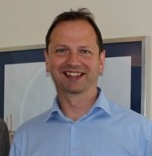Money is a tricky subject in healthcare. The moment money comes into any discussion the spectre of “conflict of interest” immediately casts its shadow and raises ugly suspicions.
Anyone in business is, by definition, an entrepreneur. That includes all private clinicians where income is a function of the volume and type of care provided.
Of all the clinicians I know, I can’t think of any who went into healthcare to “make money”. It’s not what the healthcare profession is about. One clinician I know describes himself as an “accidental entrepreneur” and that is a wholly accurate title for most clinicians. Or for others it might be more a case of “reluctant entrepreneur”!
The moment a clinician leaves the NHS and works privately (not applicable for many who go directly to private practice), they are in the healthcare business. A sole practitioner working from their spare room is an “entrepreneur”.
When we think of entrepreneur, I suspect 99% of us think Richard Branson.
If we were asked to name another 10 entrepreneurs, in the UK we would probably reel off Alan Sugar, before moving to Dragons Den characters like Peter Jones, Deborah Meaden, Theo Paphitis or we might think abroad and think Steve Jobs and up until recently we might have allowed ourselves to say Donald T!
So, are these well known people just megalomaniacs sitting stroking their white cat? Well, one might be but on the whole, not really.
Whether we think of these iconic entrepreneurs or a local builder, printing company, solicitor or manual therapist, the most successful invariably just work really hard to meet the needs of their customer (better than the competition).
That can be the best service, the best products, the ease of doing business with them (because they have an efficient operation), the nicest staff (well trained) and usually they are effective in letting people know about their services so they get to serve and help more people.
Within healthcare, amongst some other factors, my observation is that the most successful clinics provide a better than average level of care (note – not always the best) where the focus is on providing the best service possible and experience for the patient.
Of course there are some clinicians who, like Alex the Lion in the film Madagascar, view every patient as fresh meat or a walking £ sign, but I think that is the exception rather than the rule.
A successful clinician might enjoy material rewards but I believe the material rewards are a function of how well you care for your patients and how many people you reach out to care for.
We live in a capitalist society and therefore financial goals are a requirement for individuals, including clinicians, because our futures and retirement standard of living depend on it (unless we plan to go and live in the woods).
Realising a financial goal requires a strategy and tactics to get there. But returning to the title, the two need not be mutually exclusive.
Successful entrepreneurship requires providing the best possible product, service and experience to the customer, which will help achieve a given set of goals – personal or financial.
So when it comes to healthcare, I believe it is compatible with entrepreneurship albeit that in practically all cases the two come together accidentally! And at the end of the day it’s not complicated; the patient must come first, always.
Author: Stephen Small – Steadfast Clinics, IDD Therapy and Spinex Disc Clinic
Connect on linkedin www.linkedin.com/in/stephen-small-0b404718
Twitter: www.twitter.com/iddtherapyeuro (I follow back)

